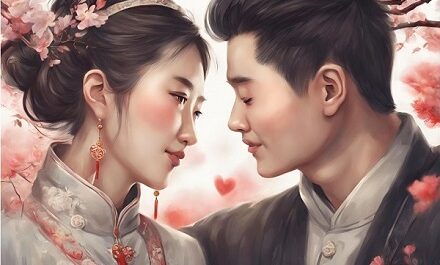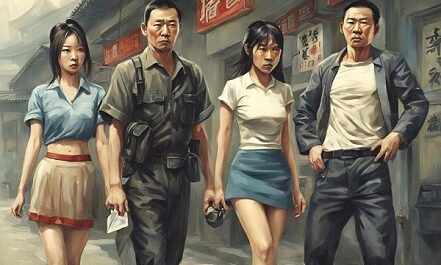Learn Chinese Idiom with Pinyin and English
- Idiom in Chinese-女织男耕。
- Pinyin of Idiom– nǚ zhī nán gēng.
- Idiom’s Meaning in English– The Chinese idiom “nǚ zhī nán gēng” depicts a traditional division of labor in ancient China, where women were primarily responsible for weaving and textile work, while men took on the task of farming and agriculture. This division reflected the social roles and responsibilities assigned to each gender at that time.
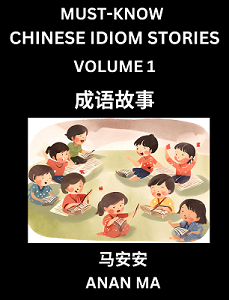
Chinese Idiom Stories Books (HSK All Levels):
- Books to Learn Chinese Idiom Stories (Part 1)
- Books to Learn Chinese Idiom Stories (Part 2)
- Books to Learn Chinese Idiom Stories (Part 3)
Learn Chinese Idiom Story in English (成语故事的英文)
In ancient China, there was a diligent couple in a small town. The husband, Li Dali, was a farmer in the village. He worked hard in the fields from sunrise to sunset, ensuring a good harvest for their family. His wife, Wang Xiaomei, was a skilled weaver. She spun yarn and wove fabrics at home, creating exquisite clothes and textiles to supplement their income. The couple had a clear division of labor, with the husband farming and the wife weaving. They worked in perfect harmony, and their diligent efforts led to a happy and prosperous family life. Their hard work and tacit understanding also earned them the admiration and respect of the villagers.
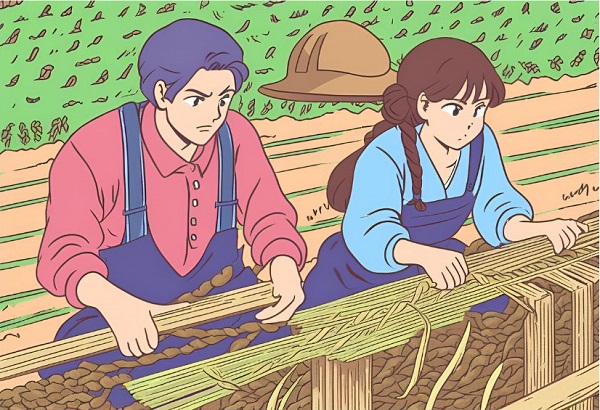
Learn Idiom Story in Chinese (成语故事)
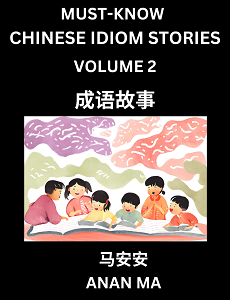
在古代中国的一个小镇上,有一对勤劳的夫妇。丈夫李大力是村里的农夫,他日出而作,日落而息,辛勤劳作在田间地头,确保家里的庄稼丰收。而他的妻子王小梅则是一位心灵手巧的织女,她在家中纺纱织布,制作精美的衣物和布料,以补贴家用。夫妇俩分工明确,男耕女织,配合默契,家庭生活过得幸福美满。他们的勤劳和默契也赢得了村民们的赞誉和尊重。
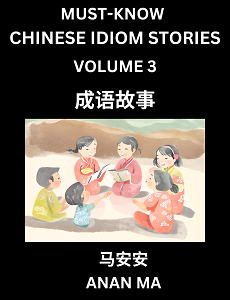
Learn Keywords with English, Simplified Chinese Characters, and Pinyin (关键词)
李大力(Lǐ Dàlì): Li Dali (husband’s name)
王小梅(Wáng Xiǎoméi): Wang Xiaomei (wife’s name)
农夫(nóngfū): farmer
织女(zhīnǚ): weaver
分工明确(fēn gōng míng què): clear division of labor
男耕女织(nán gēng nǚ zhī): men farm and women weave
默契(mòqì): tacit understanding
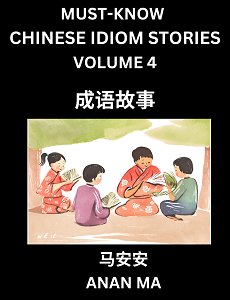
Pinyin of Idiom Story (故事的拼音)
Zài gǔdài zhōngguó de yīgè xiǎo zhèn shàng, yǒuyī duì qínláo de fūfù. Zhàngfū lǐ dàlì shì cūnlǐ de nóngfū, tā rì chū ér zuò, rìluò ér xī, xīnqínláozuò zài tiánjiān dìtóu, quèbǎo jiālǐ de zhuāngjià fēngshōu. Ér tā de qīzi wángxiǎoméi zé shì yī wèi xīnlíng shǒuqiǎo de zhīnǚ, tā zài jiāzhōng fǎng shā zhī bù, zhìzuò jīngměi de yīwù hé bùliào, yǐ bǔtiē jiāyòng. Fūfù liǎ fēngōng míngquè, nán gēng nǚ zhī, pèihé mòqì, jiātíng shēnghuóguò dé xìngfú měimǎn. Tāmen de qín láo hé mòqì yě yíngdéle cūnmínmen de zànyù hé zūnzhòng.
